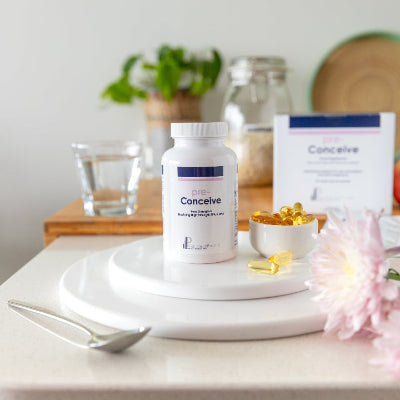Understanding Your Fertile Window
The "fertile window" refers to the limited period in your menstrual cycle when pregnancy is possible. It begins approximately five days before ovulation and includes the ovulation day itself, spanning around six fertile days each cycle. Office on Women's Health & ACOG
- The most fertile period typically includes the three days leading up to ovulation and ovulation day.
- Sperm can survive up to five days, while the released egg remains viable for 12–24 hours.
1. Pinpointing Ovulation Timing
Ovulation generally occurs about 14 days before your next period, regardless of your cycle length. ACOG & Cleveland Clinic.
- Regular cycles (e.g., 28-day): ovulation around day 14 - fertile days are roughly days 12–14. Your Fertility & nhs.uk.
- Shorter or longer cycles shift ovulation accordingly, e.g., a 35-day cycle might ovulate around day 21 Your Fertility.
2. Methods to Track Ovulation
Boost accuracy by using multiple tracking methods:
- Calendar method: Estimate ovulation by counting, if your cycle is 28 days, ovulation likely on day 14.
- Cervical mucus: Just before ovulation, mucus becomes clearer, stretchy, and egg-white-like, helping sperm movement.
- Ovulation predictor kits (OPKs): Detect the luteinising hormone (LH) surge 24 to 36 hours before ovulation
- Basal Body Temperature (BBT): Small temperature rise post-ovulation can confirm its occurrence when tracked consistently
3. Nutrition Matters: Preparing Your Body for Conception
A well-balanced diet supports hormonal health and egg quality. Certain nutrients are particularly key:
- Folic acid (B9): Essential before and during conception; improves pregnancy rates and supports early foetal development. Recommended dose: 400mcg daily (methylated form preferred, like in pre-Conceive).
- B Vitamins (B6 & B12): Aid hormonal balance and ovulatory cycles; deficiencies may impair embryo quality especially in IVF.
- Vitamin D: Supplementation of Vitamin D linked to higher pregnancy rates. Particularly beneficial for those with PCOS.
- Omega-3 / Fish Oil: Promotes reproductive health and potentially better outcomes.
Other key nutrients include iodine, calcium, selenium, iron, zinc, magnesium, and vitamin A - deficiencies can adversely affect fertility.
4. Lifestyle and Dietary Foundations
- Mediterranean-style diet: Rich in fruits, vegetables, lean proteins, healthy fats - associated with improved fertility in both sexes.
- Healthy lifestyle: Moderate exercise, stress reduction, and avoiding toxins can enhance fertility readiness.
Crafting a Preconception Plan: Sample Approach
- Track your cycle using apps, mucus, OPKs, or BBT to establish your fertile window.
- Focus on nutrition: Prioritise a balanced diet, consider folic acid and prenatal vitamins.
- Assess specific needs: If indicated, explore D-vitamin, CoQ10, or others under medical advice.
- Time intercourse during your peak fertile days, ideally every day or every other day within that window.
- Monitor progress and adapt as needed, with health support if conception isn’t achieved within a few cycles.
Conclusion
Understanding your fertile window is the first step toward maximising your chances of conception. By tracking ovulation accurately - through methods like cervical mucus observation, basal body temperature, calendar calculations, or ovulation predictor kits - you can pinpoint the days when you are most likely to conceive.
Equally important is preparing your body through nutrition and lifestyle choices. Key nutrients such as folic acid, B vitamins, vitamin D, omega‑3s, and minerals like zinc and selenium play a vital role in supporting egg quality, hormonal balance, and reproductive health. Supplements like CoQ10 can offer additional support, particularly for specific needs or fertility conditions, but should always be used under professional guidance.
Combining careful tracking, a balanced diet, targeted supplementation, and a healthy lifestyle forms a comprehensive preconception strategy. By taking these steps, you give yourself the best possible foundation for conception and early pregnancy, empowering your fertility journey with knowledge, preparation, and proactive care.






